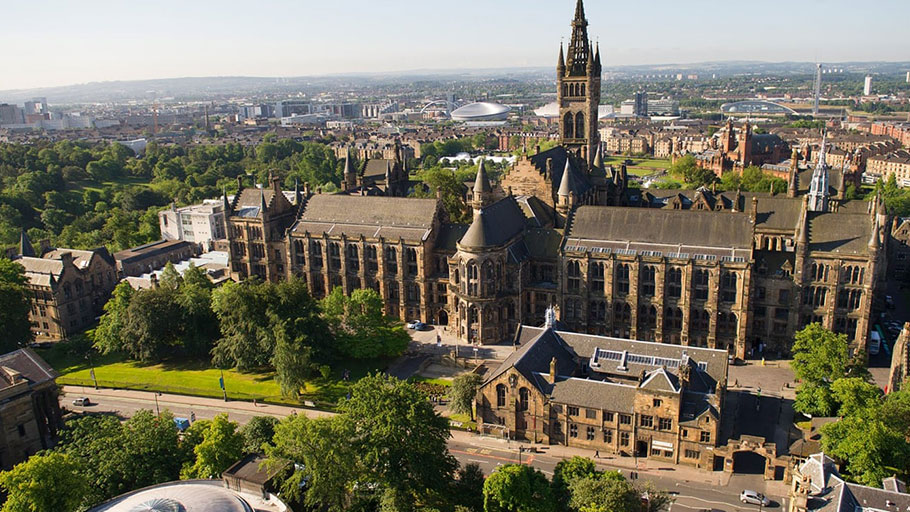The University of Glasgow has examined the historical slave-holding record of benefactors. Photograph: University of Glasgow
University received ‘significant financial support’ from slavery in 18th and 19th centuries.
By Martin Belam, The Guardian —
Glasgow University has announced a programme of “reparative justice” after a year-long study discovered that the university benefited from the equivalent of tens of millions of pounds donated from the profits of slavery.
The report states that although the university itself “adopted a clear anti-slavery position”, during the 18th and 19th centuries it received gifts and bequests from people connected to slavery.
As a result of the study, the university will create a centre for the study of slavery and has agreed to add a memorial or tribute at the university in the name of the enslaved.
Prof Sir Anton Muscatelli, the principal and vice-chancellor of the University of Glasgow, said: “This report has been an important undertaking and commitment to find out if the university benefited from slavery in the past. Although the university never owned enslaved people or traded in the goods they produced, it is now clear we received significant financial support from people whose wealth came from slavery.”
The report concluded that the university benefited by between £16.7m and £198m, depending on how the amount is updated to its present-day value. It studied about 200 endowments, bursaries and prizes, looking for whether the people donating the sum made most of their money directly from slavery, or less directly, through trading in tobacco, sugar, and cotton.
The Slavery, Abolition and the University of Glasgow report was co-authored by Prof Simon Newman and Dr Stephen Mullen, and examined the roles of university alumni such as Robert Cunninghame Graham (1735-1797) in the slave trade.
A former rector of the university, Graham made a gift of £100 in 1788 to establish the Gartmore Gold Medal, awarded every two years for the best student work on “political liberty”. Graham had been a slave owner for nearly four decades at the time he endowed the prize.
The study also demonstrated that between 1727 and 1838, more than 100 students who attended the Old College came from the Caribbean, “most of them the sons of slave-owning planters and merchants”.
Co-author Newman said “The University of Glasgow is an institution that grew in a city tied to the trade in tobacco, sugar and cotton, all of which were initially produced by enslaved Africans. Launching an in-depth investigation to look at how the university might have benefited from the profits of racial slavery was, in my opinion, a brave decision. But it is a decision rooted in the core values of an educational institution dedicated to the pursuit of truth and social justice.”
Other universities, especially in the US, have carried out work to research the extent to which they were funded by or supported slavery, and to present that history in an appropriate context. The University of Mississippi, for example, has added a plaque to a stained-glass window commemorating the “University Greys”, explaining that the infantry unit were fighting in the Confederate army to support the injustice of slavery.
The way universities and museums deal with the legacy of slave-owning benefactors has become a major subject of debate within academia, often brought into the public eye by protests from present-day students such as the “Rhodes must fall” campaign at Oxford.
As part of the process, Glasgow University joined the international Universities Studying Slavery group, which includes more than 40 institutions from the US, UK and Ireland. They also collaborated with the University of the West Indies.
Prof Sir Hilary Beckles, the vice-chancellor of the University of the West Indies, welcomed the report, saying: “I celebrate colleagues in Glasgow for taking these first steps and keenly anticipate working through next steps.”
Muscatelli added: “The university has set out a programme of reparative justice through which we will seek to acknowledge this aspect of the university’s past, enhance awareness and understanding of historical slavery.
“The university deeply regrets this association with historical slavery, which clashes with our proud history of support for the abolition of both the slave trade and slavery itself.”















